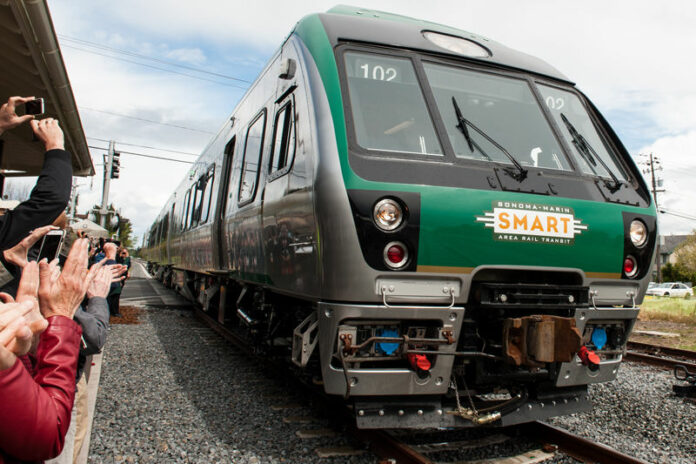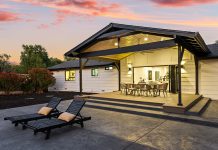In 2008, the folks behind SMART told us that if voters approved the quarter-percent 20 year sales tax they would build 71 miles of train and a 71-mile bike path and that annual operating costs would be $16.5 million per year. They also claimed SMART would alleviate traffic on 101 and help fight climate change. The problem is none of these promises ever materialized and now SMART is asking voters to approve an additional $2.4 billion on a 30-year tax extension nine years before the current tax expires.
Here are the facts:
Measure I funds won’t finish train and bike path. SMART estimates the cost to complete the train to Cloverdale and the bike path is $500 million but there is not a single dime allocated towards that $500 million in the Measure I expenditure plan.
Estimated operating costs are over budget. In 2008, SMART estimated the annual operating cost for the train would be $16.5 million per year. Next year the operating cost will be $41.3 million or 250% over the 2008 amount. And according to SMART’s 2019 Strategic Plan, the average operating costs moving forward for the next 40 years will be $85 million per year, 500% over the original estimate.
No significant impact on traffic. According to their ballot statement SMART has carried 1.5 million passengers and according to their 2019 Strategic Plan it carries 13,922 passengers per week. Since most everyone who rides SMART takes it round-trip, this means the daily trip riders average between 887 and 994 per day depending on which passenger count you use. Put another way, only one eighth of one percent of the population of Marin and Sonoma rides SMART each day.
(Editor’s note: A federally-mandated on-board passenger count, a requirement of the National Transit Database (NTD) from Jan. to Sept. 2019 shows average weekday riders at around 2,040, and weekend riders at around 800).
Measure I supporters claim the measure will save SMART $12.2 million annually. That is true, but only because it will extend the debt service from 10 more years to 30 more years. In SMART’s case, the additional debt payments will total $47 million.
Voters should ask themselves if SMART is really worth that investment, or if there more pressing needs for that money, such as road maintenance, fire prevention or the homeless crisis.
Ken Churchill is the director of New Sonoma, an organization of financial experts and citizens concerned about the finances and governance of our county.








